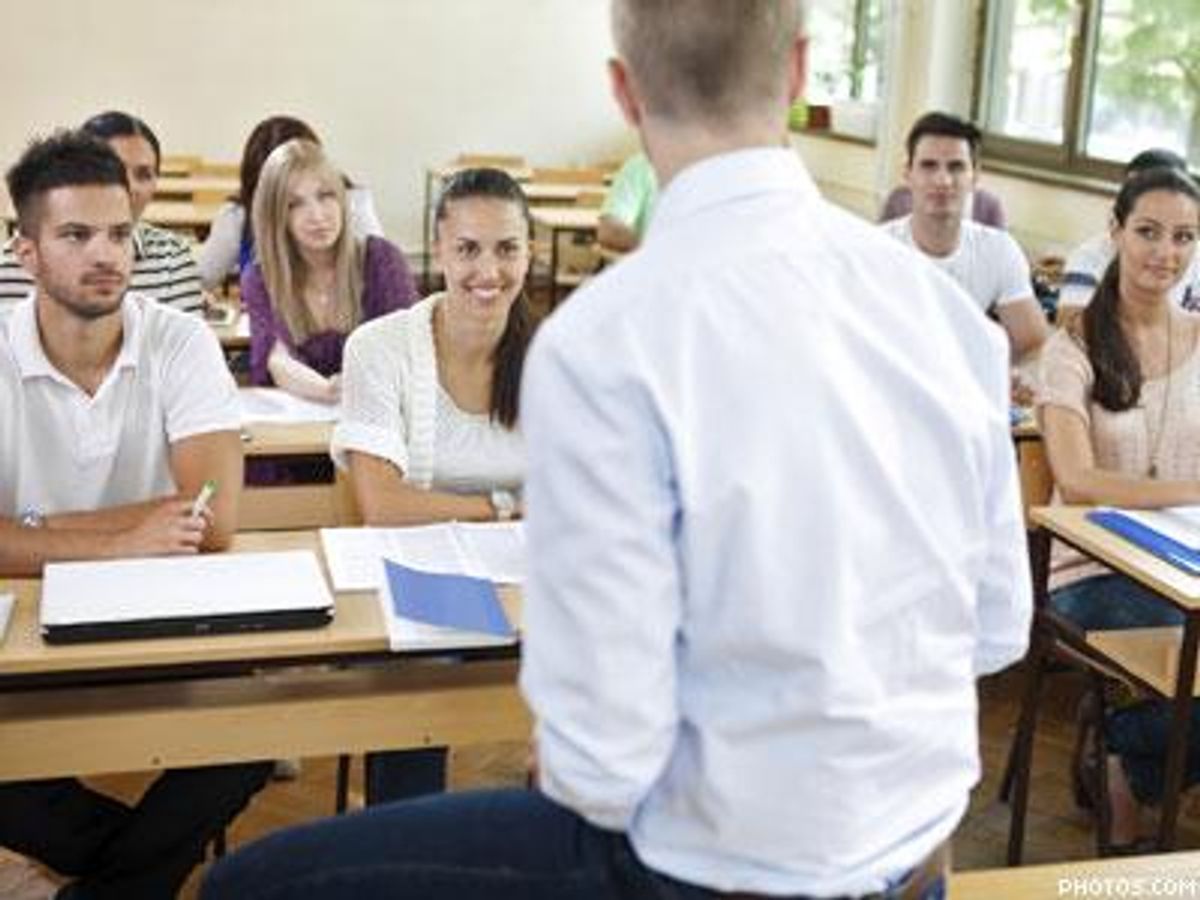
How one teacher brought queer studies (and self-empowerment) to a high school in Birmingham.
January 17 2014 6:07 AM EST
November 17 2015 5:28 AM EST
By continuing to use our site, you agree to our Private Policy and Terms of Use.

I'm currently teaching a senior English elective course called Queer Literature and Theory to 12 very bright, engaged students. This isn't an undergraduate course or graduate seminar. It's at a high school -- in Alabama. I've looked over course listings at schools similar to ours (we are an independent boarding and day school), and I have not seen anything comparable. I told my students the other day that, just by being part of this academic adventure, we were "queering" the landscape of what high school academics looks like.
If there's any space that should be devoted to incubating thought about a more just, livable society, it is the classroom. And at a time when our American culture is debating the extent to which we will extend civil rights and civil liberties to LGBTQ people, I think that it's my duty as a teacher to include my students in this broader cultural narrative. My added motivation is that our school, just a few miles south of the 16th Street Baptist Church in Birmingham where, 50 years ago, a bombing killed four innocent girls and forever blighted this city's and this state's reputation, has as its theme for the year "Civil Rights and Civil Liberties." We spend a lot of time in classrooms looking at the past, but I want my students to realize that the narrative and spirit of justice that suffused the civil rights movement is not just for the history books. The social movements at Seneca Falls, Selma, and Stonewall, as President Obama mentioned in his inaugural address a year ago, laid the groundwork for what my students can and must still do.
My idea to teach the course developed over the past three years of teaching at this school. I never "came out" when I started working here because I was never "in," so to speak. I was always up front with my school community about my being gay, and I have yet to run into any open hostility or objections. My being open about my own sexuality made me an obvious person for students who identified as LGBTQ+ and their allies to come to for starting a gay-straight alliance, and I am proud of this active group on our campus.
There was such good energy in GSA meetings, and I noticed a real hunger to know more and more about queer culture, politics, history, and literature.
Even in those student-led meetings, I found myself doing a bit of teaching from time to time. "Here's the two-minute version of why the gender binary fails." Or "Have y'all seen Paris Is Burning?" The students were interested, and I was thrilled by their interest. One of the benefits of teaching at an independent school is freedom in shaping our curriculum. When I pitched the idea of teaching Queer Literature and Theory, I expected an email from the dean of academics along the lines of "Interesting. Let's talk." Instead, I was met with silence, which I interpreted as enthusiastic assent.
We are a week into the course, and enthusiasm for the material is high; the students realize they are part of something special and something that is right. We are looking critically at the various privilege systems that exist in society and the ways that we construct fields of knowledge and power. They're listening to each other and to me. They're investing themselves in Foucault and Butler; they're asking themselves what rhetorical strategies can be used to bring those who benefit from privilege systems into a conversation about how to dismantle those systems. And what I find is a particular strength of the class: The students represent a range of identities and experiences. I am glad to see that these students choose to take what Eve Sedgwick calls the "universalizing" view of queer studies, rather than the "minoritizing" view. While the latter sees queer sexualities as relevant only to those who identify as queer, the former sees queer sexualities influencing all of human culture.
I'm hopeful that my students will walk onto their chosen college campuses next fall much more worldly-wise than I did as a freshman almost 10 years ago. They're thinking about social systems and inequalities. They're questioning the assumptions that are made due to gender and sexuality. They're rejecting the labels of intolerance and provinciality that are often placed on them for being students in Alabama. I am proud of my students for taking an intellectual risk and taking this class, and I am grateful to them for challenging me to be a better teacher.
DOUGLAS RAY is a teacher. Follow his class's journey at Teaching While Queer.
Viral post saying Republicans 'have two daddies now' has MAGA hot and bothered